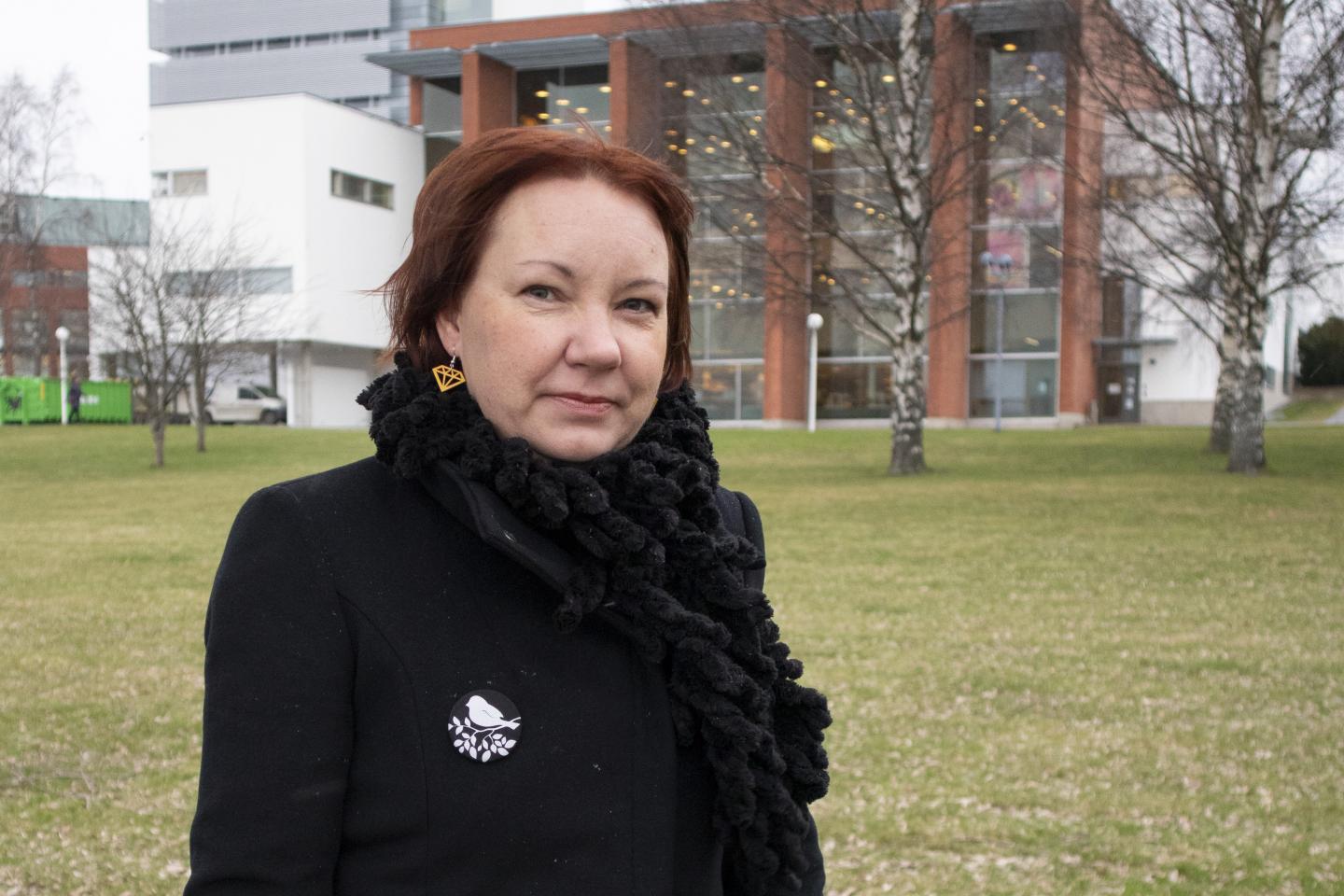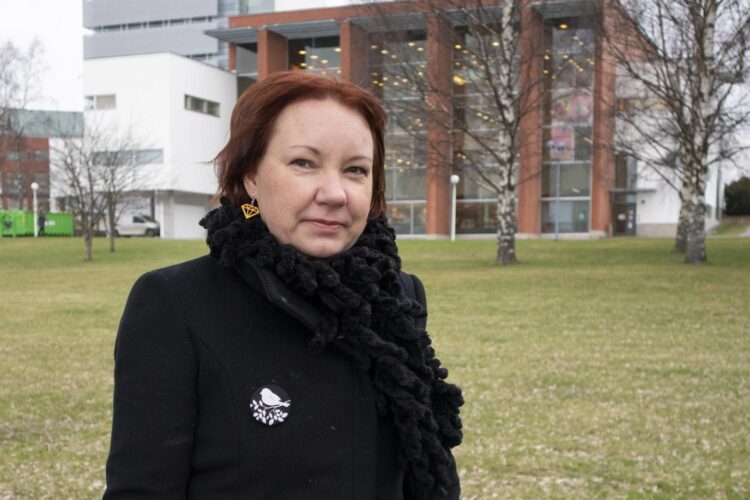Wider use of geoenergy would improve energy self-sufficiency

Credit: Riikka Kalmi
According to a new study from the University of Vaasa, Finland, seabed sediment and asphalt areas are noteworthy sources of heat energy also in northern conditions. Sediment heat has been studied in Suvilahti, Vaasa, and asphalt heat in the parking area of University of Vaasa for several years.
– I studied the usability of two new kinds of geothermal heat sources in Finnish conditions, says Mäkiranta, who is defending her doctoral dissertation on 18th December in the University of Vaasa.
A city area accumulates enormous amounts of heat energy into their environments due to buildings, streets, traffic and people. Also the scarcity of vegetation has the impact that it is warmer in a city environment than in the countryside. Heat collects, among other things, below asphalt surfaces and in the substrate of shallow water bodies.
In the study, the renewability of sediment heat was first verified. Undersea sediment is nature’s own heat reservoir, so to speak. The sun charges heat into the sediment layer during the summer. The 2008 housing exhibition area of Suvilahti, Vaasa uses this heat reservoir for heating and cooling the houses. Permanent lowering of the sediment’s temperature was not observed despite several heating seasons.
Below asphalt, temperatures were found to remain above zero degree in a depth of half a meter from April until December. According to Mäkiranta, because of its seasonal availability, asphalt heat should be stored or used for example to revive a heat well instead of direct use. A particular downside of asphalt heat is heat loss during the night. The usability of asphalt heat can be developed by improving the heat transferability of asphalt by changing the soil structures below the asphalt or by irrigation of the asphalt surface.
Wider use of geoenergy would improve energy self-sufficiency
The wider perspective of the study concerns saving energy and energy self-sufficiency.
– My doctoral thesis studies the possibilities of utilising urban energy right where it is generated. Furthermore, the energy self-sufficiency of our country can be improved by investing in more extensive use of geoenergy than is currently the case. Local energy should be used as extensively as possible instead of transporting energy from long distances, says Mäkiranta.
– Why bring energy for example in the form of heating fuel from far away, when underground local heat and local sources of waste heat are available and usable?
The doctoral dissertation consists of seven part-studies, four of which concern sediment heat and three concern asphalt heat. The part-studies have been published as seven peer-reviewed articles. Research measurements were carried out in the period 2013-2017.
Public defence
The public examination of M.Sc. Anne Mäkiranta’s doctoral dissertation “Renewable thermal energy sources: sediment and asphalt energy applications in an urban northern environment” will be held on Friday 18 December 2020 at 12.
The event will be organized online:
https:/
The field of dissertation is Energy Technology. Professor Markku Virtanen (Aalto University) will act as an opponent and Research Manager, Ph.D. Erkki Hiltunen as a custos. The examination will be held in Finnish.
###
Doctoral dissertation
Mäkiranta, Anne (2020) Renewable thermal energy sources: sediment and asphalt energy applications in an urban northern environment. Acta Wasaensia 454. Doctoral dissertation. University of Vaasa – Vaasan yliopisto.
Publication pdf:
http://urn.
Media Contact
Anne Mäkiranta
[email protected]
Original Source
https:/





